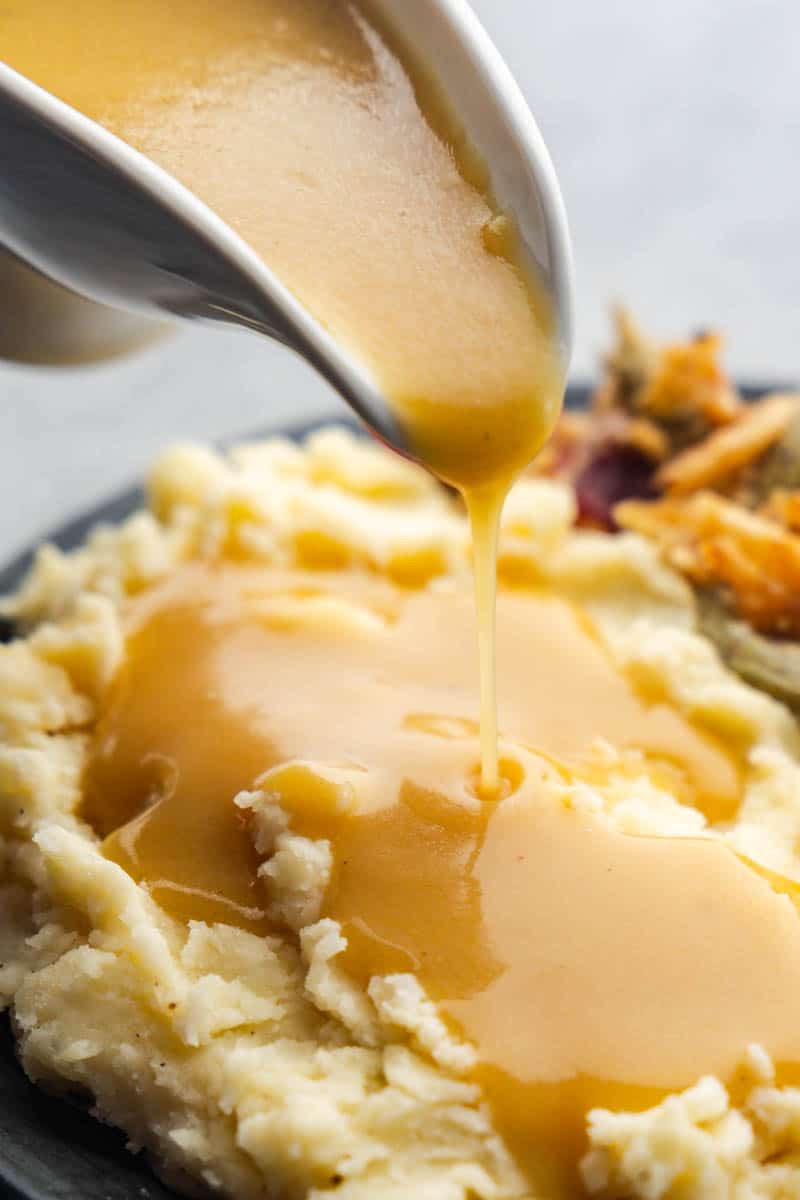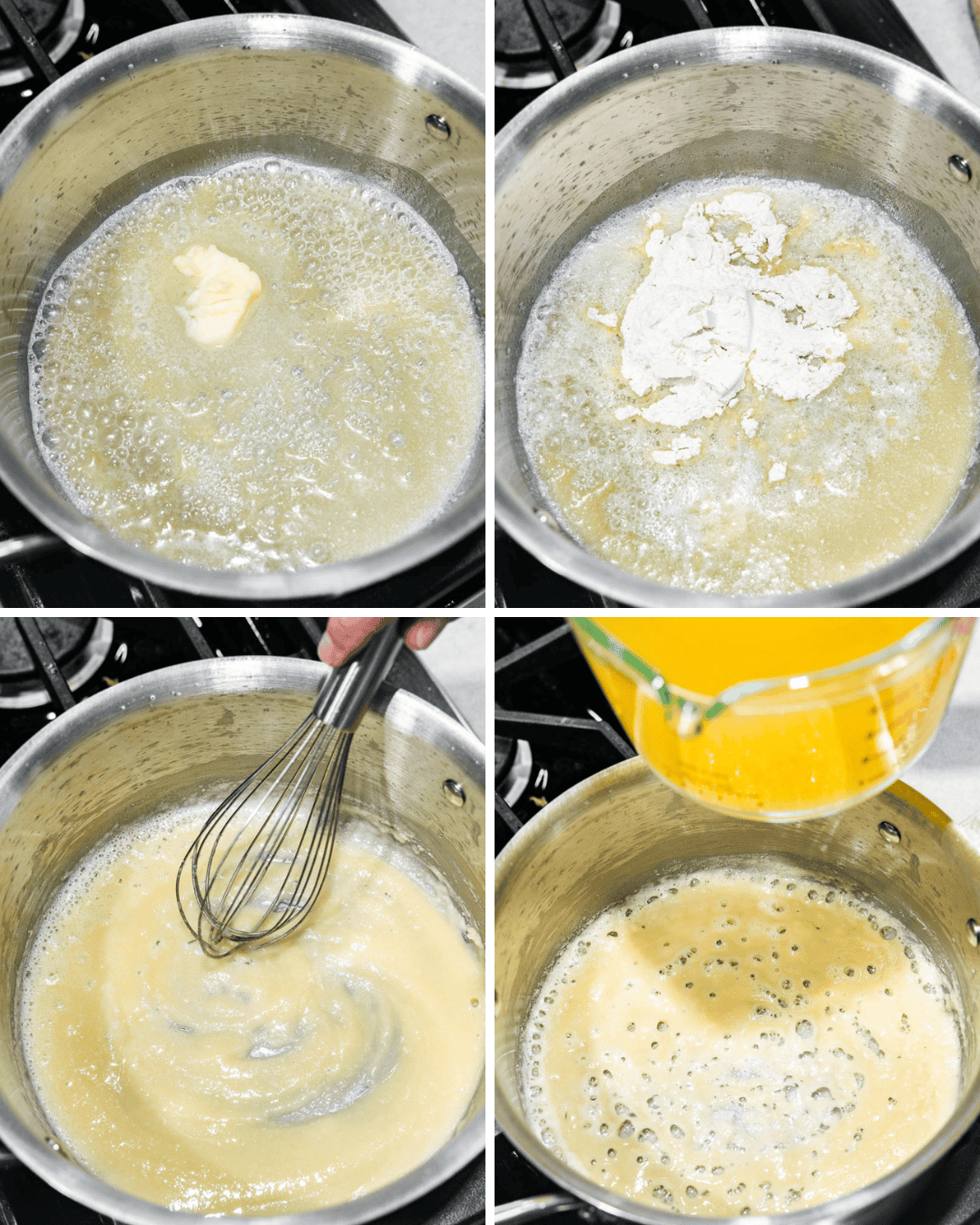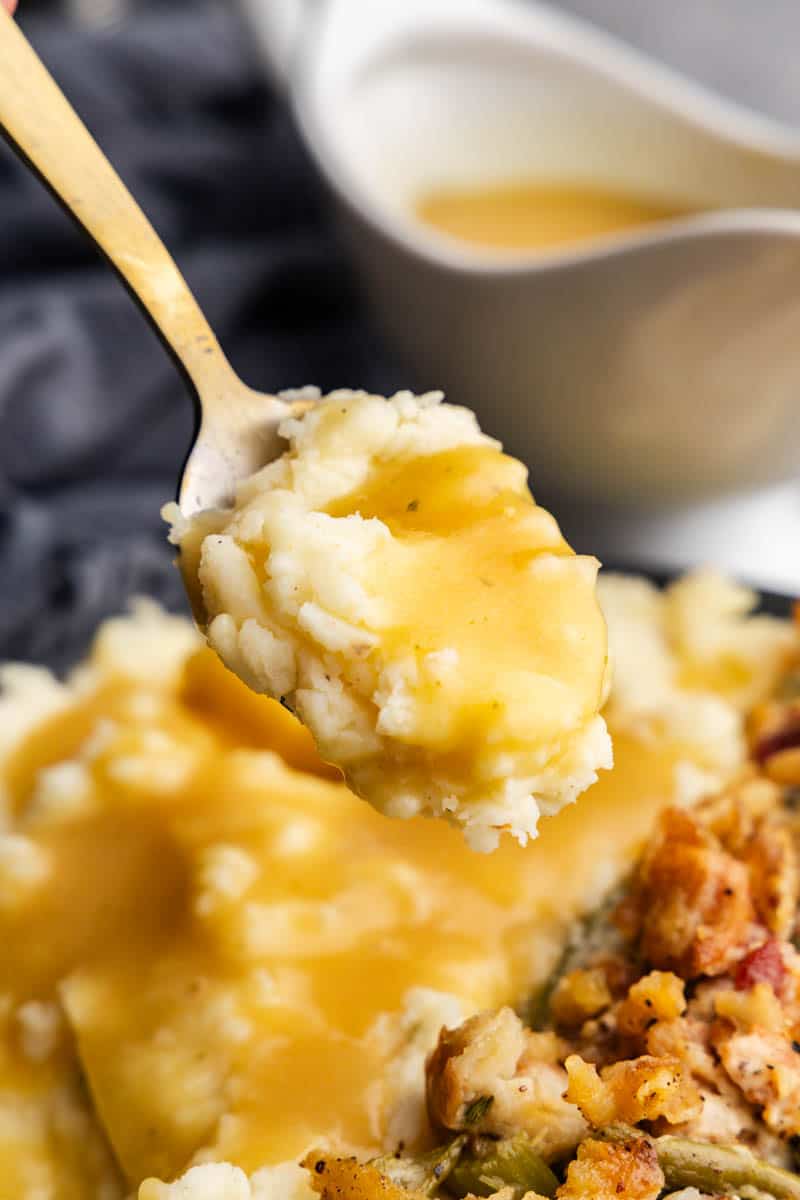
Making homemade gravy is an important skill for any home cook. Use our ultimate gravy guide to learn to make gravy of any kind! Thankfully, making gravy is super easy, and you can quickly whip up a homemade gravy to go with any meal! You can have gravy alongside mashed potatoes, turkey, or pot roast. You could even whip up some simple sausage gravy to serve over biscuits or toast!
Use our recipes for the Juiciest Turkey Ever or our Classic Sunday Pot Roast to get pan drippings to use in your gravy.
Why Our Recipe
- Printable recipe that includes detailed instructions for making any kind of gravy.
- Has instructions to make gravy with pan drippings, broths, or stocks to make all varieties of gravy, even gluten-free ones.
- Includes a video demonstration for visual reference.

Homemade gravy is so delicious, and you won’t believe how easy it is to make! With very few ingredients and a super customizable recipe, you’ll never go back to the store-bought stuff.
Ingredient Notes
- Fat: You can use any kind of fat when making gravy. You can go with butter, coconut oil, vegetable oil, margarine, or bacon fat. Butter and bacon fat will give you the best flavor.
- Thickener: All-purpose flour and cornstarch are the preferred thickeners for making gravy. Flour is the more traditional choice, with cornstarch being a gluten-free alternative.
- Broth: Gravy comes in all varieties, and that starts with the broth! You can use any kind of broth, stock, or other liquid in the same amount to make gravy. Chicken broth, beef broth, or turkey broth all work great, and you can even use vegetable broth to make a vegetarian gravy.
Making a Roux
The first step of homemade gravy is to make a roux. A roux is a 1:2 mixture of fat to all-purpose flour. The fat used in gravy is usually butter, but you can use other fats too! You’ll melt the fat and add the flour, combining it over heat and cooking it briefly. You’ll then add the liquid and let it simmer. The roux is what thickens the liquid and makes the gravy.

Using Pan Drippings
Pan drippings are a super flavorful option for homemade gravy. To use the pan drippings, you’ll first need to remove the fat and gristle, and the easiest way to do that is to pour the liquid through a fine mesh strainer into a glass liquid measuring cup. That will also let you see how much dripping liquid you have.
Making Gravy Directly in a Roasting Pan
If you are using a roaster to cook your meat, you can also make your gravy directly in the roasting pan! You’ll want to do this when the roast has just finished cooking and the drippings are still very hot. Just skim off any fat or gristle, then spoon out 1/4 cup of the drippings into a small bowl. Whisk in 2 tablespoons of cornstarch for about 2 cups of drippings, then pour this slurry back into the pan, and then whisk well until the gravy thickens.

Gluten-Free Gravy
Making a gluten-free gravy is actually super easy! Instead of using flour in the roux, you’ll use cornstarch. However, cornstarch is a more powerful thickening agent, so you’ll only need half the amount that you would for flour. If the recipe calls for 1/4 cup of flour, replace that with 2 tablespoons of cornstarch.
Milk Gravy
You can use milk instead of broth to make creamy gravies like sausage gravy or a simple white gravy for fried pork chops or chicken-fried steak. You can also add milk to any meat-based gravy for a creamy variation. You’ll just replace part of the liquid called for with milk.
Storage and Reheating Instructions
Refrigerate leftovers in an airtight container for up to 4 days.
Reheat gravy in a saucepan over medium-low heat or microwave on high in 30-second increments until hot, stirring in between for even heating.
More gravy recipes…
Watch the video below where Rachel will walk you through every step of this recipe. Sometimes it helps to have a visual, and we’ve always got you covered with our cooking show. You can find the complete collection of recipes on YouTube, our Facebook Page, or right here on our website with their corresponding recipes.
Discover more from reviewer4you.com
Subscribe to get the latest posts to your email.





